All Stories
-
 Particle Physics
Particle PhysicsLHC reports pentaquark sightings
Two particles discovered at the Large Hadron Collider are composed of five quarks, not two or three like nearly every other known quark-based particle.
By Andrew Grant -
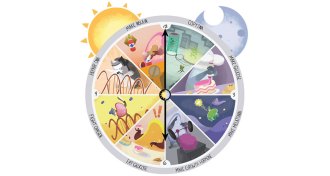 Life
LifeThe origin of biological clocks
Most of Earth’s creatures keep time with the planet’s day/night cycle. Scientists are still debating how and why the circadian clocks that govern biological timekeeping evolved.
-
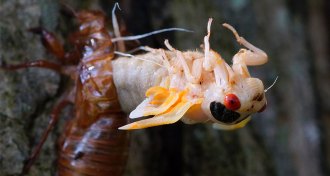 Animals
AnimalsSome animals’ internal clocks follow a different drummer
Circadian clocks in some animals tick-tock to a different beat.
-
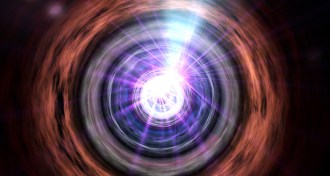 Astronomy
AstronomySource of blazars’ super brightness comes into focus
Astronomers take a close look at a blazar, a galaxy whose central black hole emits gamma rays and other high-energy material toward Earth.
By Andrew Grant -
 Anthropology
AnthropologyTooth, jaw fossils tell tale of North America’s last nonhuman primates
Oregon fossils provide new clues to North America’s last nonhuman primates.
By Bruce Bower -
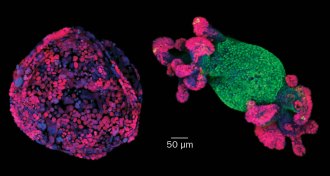 Genetics
GeneticsGenetic switch wipes out tumors in mice
By switching on a single gene, researchers turned cancer cells in mice back into normal intestinal tissue.
By Meghan Rosen -
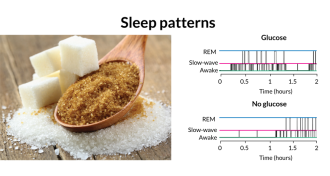
-
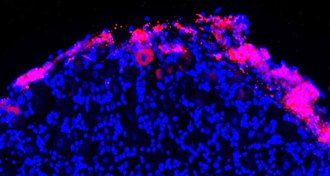 Health & Medicine
Health & MedicinePotential pain treatment’s mechanism deciphered
Scientists have new insight as to how a class of environment-sensing bone marrow cells can help safely relieve pain.
-
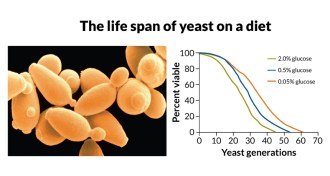 Life
LifeCutting calories lets yeast live longer
A new study confirms yeast live longer on fewer calories.
-
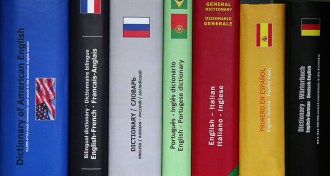 Science & Society
Science & SocietyHow English became science’s lingua franca
A new book explores the roles of war, politics and economics in the rise of English in scientific communication.
-
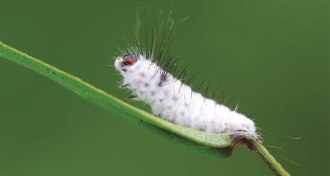 Life
LifeA downy killer wages chemical warfare
The common fungus Beauveria bassiana makes white downy corpses of its victims.
By Beth Mole -
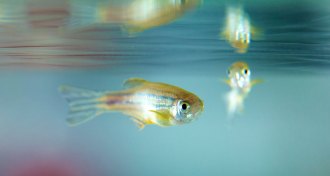 Genetics
GeneticsMutation-disease link masked in zebrafish
Zebrafish study shows organisms can work around DNA mutations.